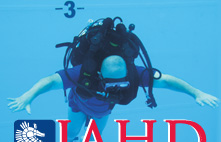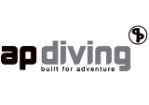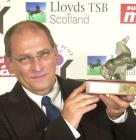OSEBJE
Fraser Bathgate
Profession: Prosessional outdoor Instructor
Nationality: British
Date of birth:
Address:
E-Mail: fraser.b@blueyonder.co.uk
Phone: 0044 79 73 789 070
At the age of 23, Fraser Bathgate was living in
Shortly before his departure, Bathgate was 25ft up a climbing wall testing his new boots when someone at the foot of the wall unwittingly unclipped his safety rope. He landed on his heels on the concrete, breaking bones in his legs and feet and compressing his spine.
Paralysed from the waist down, Bathgate moved back to his home town of
In 1992, Fraser´s sister invited him to visit her in
It was the first time he had felt able-bodied for six years, and those around him noted an overnight transformation in his outlook.
The natural aptitude that had once been aimed at scaling high peaks was switched into exploring the world´s sea depths. Bathgate soon refined a swimming technique that combined hip-rotation with the use of his arms for underwater propulsion. His next step was to qualify as a scuba diver, which he did with the Professional Association of Diving Instructors (PADI) in
By 1994, Bathgate had gone much further - he had become the world´s first paraplegic PADI Instructor. He was determined that other wheelchair-users should not have to undergo the sort of frustration and depression he had suffered. With diving schools doing little to welcome people with disabilities, he decided to bypass them and go straight to teaching diving to patients at spinal rehabilitation centres.
In 1993 the International Association of Handicapped Divers (IAHD) had been formed to provide instructors, dive buddies and training programmes for people with serious physical disabilities. Bathgate joined the organisation of which he is today Vice-President and Director of Training. He rewrote its training manual and, after qualifying as an Instructor Trainer with another leading training agency, the National Association of Underwater Instructors, began teaching not only disabled divers but future instructors.
It can be easier to train disabled people than the able-bodied, because they tend to be so focused, says Bathgate.
Much of his work was with disabled children: I will always remember working with a boy who had cerebral palsy and whose carers had never seen him smile. They were amazed when he came up from the water with a massive grin on his face.
What was originally intended to be a UK-based training programme rapidly went global. In the course of supervising diver training, Bathgate has travelled to North and Central America, the Middle and
And his international travels soon began to embrace meetings at government level, to discuss not only diving but wider accessiblity issues for wheelchair-users. Back home, he continued his ambitious programme of motivational presentations at spinal rehabilitation units - what he called his No Barriers tours.
At one point I was covering
Bathgate became a Ford MAGIC Ambassador. MAGIC (Mobility and General Information Centre) is Ford´s free phone information service on driving with a disability, and meeting so many disabled motorists in the course of his activities, Bathgate has been well-placed to help them with any mobility concerns they may have.
Today, Fraser Bathgate is one of the world´s leading consultants on access for disabled people to major outdoor events. In 2001 he became Disabled Liaison Officer for Rock Steady Security, one of the
Recently he has helped many disabled people enjoy Live 8, T in the Park and individual open-air concerts by Queen, REM, U2, Oasis, Elton John and Coldplay.
To get me to a concert now, it has to be a really good band! he jokes. He was also disability consultant for the Make Poverty History event in
Some promoters won´t make a move now without checking with us first, he says. Sometimes provision for wheelchair-users is made but in the wrong way, such as ramps that are too steep, or space allocated to the side of a stage instead of in the middle, so that the line of sight is poor. Our main task is to make sure that people can get in and out easily and safely.
Bathgate works closely with the Children´s Hospice Association Scotland (CHAS), particularly Rachel House in Kinross, to make sure that terminally ill children are able to attend outdoor events. It´s vital to ensure that they´re properly looked after in terms of catering, toilets, liquid oxygen available and so on, he says.
Despite his other responsibilities, today Fraser is more active in scuba-diving than ever. He has continued to develop his own skills - he is, for example, an Advanced Diver Medical Technician and qualified to operate a hyperbaric chamber, for treatment of divers with decompression illness. And as Adaptive Techniques Advisor for PADI International, he has worked to develop techniques that benefit able-bodied as well as disabled divers, and has written a series of interactive diver training programmes.
Everything I do is designed to make people as independent as possible, he says. To that end he has recently developed a special undersuit for divers. Being warm but also easy to put on and take off, it will make it easier for disabled people to dive in colder waters.
He has worked with other manufacturers in the
In 2002, Bathgate´s achievements were recognised when he was the subject of a BBC documentary, one of eight Lives Less Ordinary. And the following year he was a finalist in the ‘Great Scot - Unsung Hero’ Awards, an annual event recognising people who have made a real contribution to society, or overcome personal adversity in pursuit of their accomplishments. That was a great honour, he says.
In August, 2006, Bathgate completed his training to become an Instructor Course Director for the National Association of Underwater Instructors (NAUI), the world’s oldest and second-largest diver-training agency.
A Course Director is qualified to train any level of diver, including Instructor-Trainers, the qualification Bathgate already held.
“Completing this course proves that scuba diving is a very accessible activity,” commented Bathgate. “For me it’s the completion of the circle that started when I became the first paraplegic scuba instructor. With incredible support from NAUI, I’ve been able to show that every level in diving can be achieved from a wheelchair.”
This year saw yet another recognition for Bathgate’s unique skills when he was invited to
“I found the courage of these soldiers to be hugely inspiring,” said Bathgate, “and I am now hoping to start similar work with our own disabled British service people.”
Production & design: Creativ, Novi mediji d.o.o.






